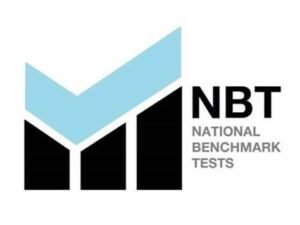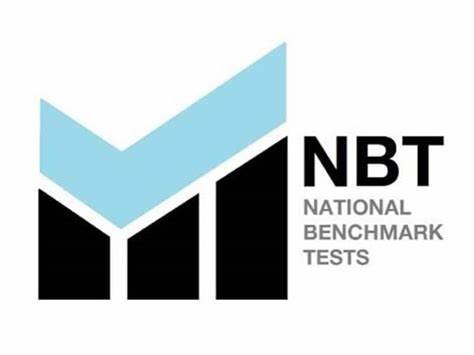How to Book a National Benchmark Test (NBT) in South Africa
The National Benchmark Test (NBT) is an important assessment for students in South Africa seeking admission to higher education institutions. These tests are designed to assess a student’s academic literacy (AL), quantitative literacy (QL), and mathematics (MAT) skills, which are essential for success in university-level courses. Many universities across South Africa require NBT scores as part of their application process, making it crucial for students to know how to book and prepare for these tests.
In this comprehensive guide, we will cover everything you need to know about the NBTs, from what they are to how to book them in South Africa. By the end of this article, you will have a step-by-step roadmap for booking your NBT and a clearer understanding of what to expect.
1. What is the National Benchmark Test (NBT)?
The National Benchmark Test is a standardized assessment that evaluates a prospective university student’s readiness for tertiary education in South Africa. The NBT is split into two categories:
- Academic Literacy and Quantitative Literacy (AQL): This test measures the student’s ability to understand academic texts, use language effectively in an academic context, and analyze and solve quantitative problems. The AQL test is mandatory for all students.
- Mathematics (MAT): This test is aimed at students applying for degree programs that require a strong mathematics foundation, such as engineering, commerce, and science. Not all students are required to take the MAT test; it depends on the university and program requirements.
Many universities in South Africa use the NBTs in combination with the National Senior Certificate (NSC) or Independent Examination Board (IEB) results to determine admissions and placement. It’s, therefore, critical for students to perform well in both their school-leaving exams and the NBTs.
2. Why Do You Need to Take the NBT?
Universities in South Africa use NBT results in several ways:
- Admission Decisions: Some universities consider NBT scores along with your NSC results to determine if you meet their academic requirements.
- Placement in Courses: Depending on your NBT results, you may be placed in extended or bridging courses designed to support students who need additional help in particular areas.
- Bursary Applications: In some cases, bursary providers may also require NBT scores when evaluating students for funding.
Even though not every university or program requires NBT scores, many competitive courses do. Checking the requirements of the institutions you’re applying to is essential to know whether you need to take the test.
3. When to Write the NBT?
The NBTs are offered on specific dates throughout the year, usually between May and December. The dates are spread out to give students flexibility in choosing a test date that works best for them. It is recommended that you take the NBT as early as possible, preferably before submitting your university application, to ensure that your results are available on time.
Keep in mind that it takes about three weeks from the date of writing the test for your results to be processed and made available to universities. Therefore, booking the NBT early in the year will provide ample time for results submission before university application deadlines.
4. How to Book a National Benchmark Test
Booking a National Benchmark Test is a simple process but should be done with attention to detail. Here is a step-by-step guide on how to book your NBT test:
Step 1: Visit the Official NBT Website
The first thing you need to do is visit the official NBT website at www.nbt.ac.za. The website contains all the information you need about test dates, locations, and registration processes. The booking system is fully online, and all communications, including test confirmations, will be conducted through the platform.
Step 2: Create an NBT Account
Before you can book a test, you will need to create an account on the NBT website. To do this, follow these steps:
- Click on the “Register” button on the home page.
- Complete the registration form with your personal details, including your name, ID number, contact information, and email address. Make sure to enter accurate information, as this will be used for all future communications.
- Once you have completed the form, you will receive a confirmation email with login credentials.
Step 3: Select a Test Date and Location
After successfully creating your account, log in to the NBT portal using your credentials. Once logged in, you can choose a test date and location that is convenient for you. The NBTs are administered in various testing centers across South Africa, including major cities like Johannesburg, Cape Town, Durban, Pretoria, and Bloemfontein.
When choosing a date, keep in mind the following:
- Availability: Popular test dates tend to fill up quickly, especially closer to application deadlines, so it’s advisable to book your test early.
- Location: Some testing centers may have limited space, so consider choosing a less crowded venue if you are flexible.
- Your Schedule: Choose a date that allows you enough time to prepare for the test and doesn’t clash with other important academic or personal commitments.
Step 4: Pay for the Test
Once you have selected your preferred test date and location, you will be directed to the payment page. The cost of the NBT is subject to change annually, but the current fee is typically between R125 and R250 per test. Be sure to check the website for the latest fee information.
Payment can be made online using a credit or debit card. You may also have the option to pay via Electronic Funds Transfer (EFT). Once payment is confirmed, you will receive a booking confirmation email with your test details.
Step 5: Prepare for the Test
After booking your test, it’s time to start preparing. The NBT website provides some resources to help you understand the test format, but it’s also advisable to practice using NBT-specific study materials. There are numerous online platforms and books dedicated to preparing for the NBT.
Familiarize yourself with the types of questions you’ll encounter, particularly if you’ll be writing both the AQL and MAT tests. This will not only help reduce test-day anxiety but also improve your overall performance.
5. What to Bring on Test Day
On the day of your test, ensure that you arrive at the test venue at least 30 minutes before the scheduled start time. You will need to bring the following items:
- Your ID Book or Passport: Identification is essential for taking the NBT. Make sure it is valid and up to date.
- Proof of Payment: You may be required to show proof that you’ve paid the test fee, especially if the payment was made via EFT.
- Pens and Pencils: Although the NBT is primarily multiple-choice, you may need to make notes or calculations, so bring writing materials.
- Mask and Sanitizer (if required): Depending on the COVID-19 guidelines at the time, you may need to adhere to health and safety regulations, including wearing a mask.
Ensure you are well-rested, eat a good breakfast, and stay hydrated to ensure optimal performance during the test.
6. Receiving Your Results
NBT results are typically available three weeks after you take the test. Once the results are ready, they will automatically be sent to the universities you indicated when registering for the test. You can also log into your NBT account to view your results.
The results will be valid for the year in which the test was written and may be carried over to the following year depending on the university’s policy. However, some institutions may request that students re-write the test if their initial scores are deemed insufficient for admission.
Conclusion
Booking your National Benchmark Test is a crucial step in your journey to higher education in South Africa. By following the steps outlined in this guide, you can easily navigate the booking process and set yourself up for success. Remember to book your test early, prepare thoroughly, and be organized on the day of the exam.


